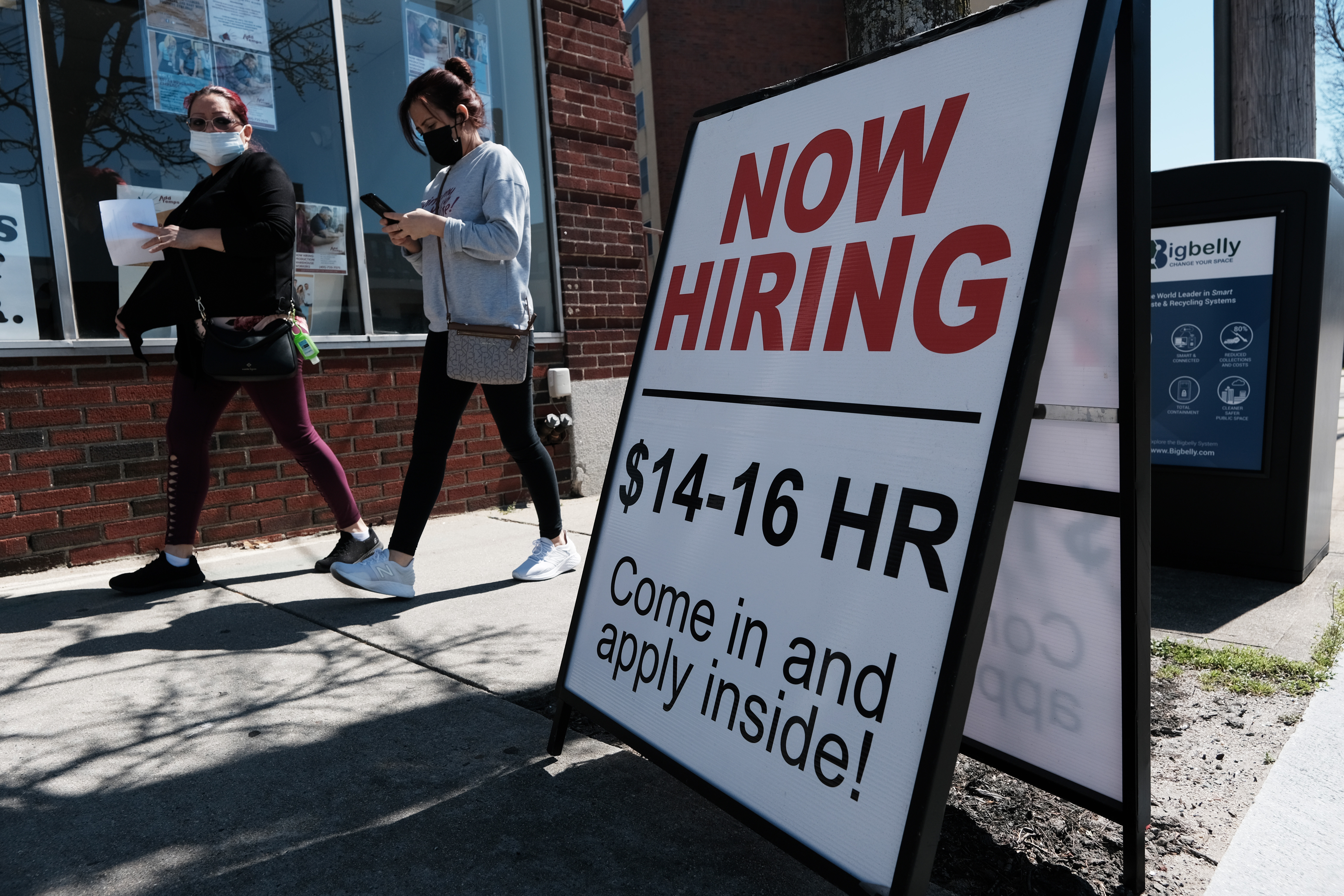GOP governors are starting to cut jobless benefits to push people back to work


A free daily email with the biggest news stories of the day – and the best features from TheWeek.com
You are now subscribed
Your newsletter sign-up was successful
The Republican governors of Arkansas, Montana, and South Carolina have announced plans to cut expanded federal jobless benefits, arguing that the extra $300 a week is keeping people from returning to the workforce. "More states are expected to follow," Rep. Kevin Brady (R-Texas) said Friday, after the Labor Department reported a smaller-than-expected 266,000 jobs added in April.
The Chamber of Commerce on Friday also urged Congress to end the benefits before they expire in September. Other GOP governors are reinstating requirements that benefit applicants prove they are looking for jobs. "We absolutely can put more people to work," Florida Gov. Ron DeSantis (R) said Wednesday.
The White House and Democrats argue the supplemental benefits are helping Americans and not measurably hurting the economy. In fact, there are a host of reasons for April's hiring slowdown, The Associated Press reports. "Nearly 3 million people are reluctant to look for work because they fear catching the virus, according to government surveys. More women also dropped out of the workforce last month, likely to care for children," and supply-chain problems have throttled the construction and manufacturing sectors.
The Week
Escape your echo chamber. Get the facts behind the news, plus analysis from multiple perspectives.

Sign up for The Week's Free Newsletters
From our morning news briefing to a weekly Good News Newsletter, get the best of The Week delivered directly to your inbox.
From our morning news briefing to a weekly Good News Newsletter, get the best of The Week delivered directly to your inbox.
But there is data suggesting businesses are right about a labor shortage, AP says. For example, "average hourly pay rose 0.7 percent in April to $30.17," a sign companies are having to offer better wages to attract workers. "Unemployment benefits have been like collective bargaining," a restaurant worker named Marie M. told AP. "They made a union out of all of us." She isn't alone in being more selective about job offers now.
The hospitality industry raised hourly pay by an average of $1 during the pandemic, Heather Long writes at The Washington Post. But "warehouses have hiked wages by more than a dollar and now pay $26 an hour on average."
Wall Street shrugged off Friday's jobs report "as an anomaly," Long notes. "But another way to look at this is there is a great reassessment going on in the U.S. economy," with "growing evidence — both anecdotal and in surveys — that a lot of people want to do something different with their lives than they did before the pandemic."
"And if the extended benefits mean some workers can take the time to find a job that's a better match for their skills, and pays them a better wage, that's a good thing, not a bad thing," Heidi Shierholz, senior economist at the left-leaning Economic Policy Institute, tells The Wall Street Journal.
A free daily email with the biggest news stories of the day – and the best features from TheWeek.com
Peter has worked as a news and culture writer and editor at The Week since the site's launch in 2008. He covers politics, world affairs, religion and cultural currents. His journalism career began as a copy editor at a financial newswire and has included editorial positions at The New York Times Magazine, Facts on File, and Oregon State University.
